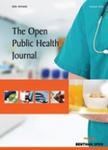版权所有:内蒙古大学图书馆 技术提供:维普资讯• 智图
内蒙古自治区呼和浩特市赛罕区大学西街235号 邮编: 010021

作者机构:Department of Computer Science & Engineering Maharaja Surajmal Institute of Technology Delhi India School of Computer Science Engineering & Technology Bennett University Greater Noida India CSE Department Graphic Era deemed to be University Uttarakhand Dehradun India Graphic Era Hill University Uttarakhand Dehradun India School of Computer Science & AI SR University Telangana Warangal 506371 India Center for Artificial Intelligence Prince Mohammad Bin Fahd University Khobar Saudi Arabia Department of Information Systems College of Computer and Information Sciences Princess Nourah Bint Abdulrahman University (PNU) P.O. Box 84428 Riyadh 11671 Saudi Arabia
出 版 物:《Open Public Health Journal》 (Open Public Health J.)
年 卷 期:2024年第17卷
学科分类:0303[法学-社会学] 12[管理学] 1204[管理学-公共管理] 120402[管理学-社会医学与卫生事业管理(可授管理学、医学学位)] 1004[医学-公共卫生与预防医学(可授医学、理学学位)] 1002[医学-临床医学] 1001[医学-基础医学(可授医学、理学学位)] 1011[医学-护理学(可授医学、理学学位)] 10[医学]
主 题:Accuracy Classification Esophageal cancer Machine learning MRI scans Networks (CNNs)
摘 要:Aims: This research paper aims to check the effectiveness of a variety of machine learning models in classifying esophageal cancer through MRI scans. The current study encompasses Convolutional Neural Network (CNN), K-Nearest Neighbor (KNN), Recurrent Neural Network (RNN), and Visual Geometry Group 16 (VGG16), among others which are elaborated in this paper. This paper aims to identify the most accurate model to facilitate increased, improved diagnostic accuracy to revolutionize early detection methods for this dreadful disease. The ultimate goal is, therefore, to improve the clinical practice performance and its results with advanced machine learning techniques in medical diagnosis. Background: Esophageal cancer poses a critical problem for medical oncologists since its pathology is quite complex, and the death rate is exceptionally high. Proper early detection is essential for effective treatment and improved survival. The results are positive, but the conventional diagnostic methods are not sensitive and have low specificity. Recent progress in machine learning methods brings a new possibility to high sensitivity and specificity in the diagnosis. This paper explores the potentiality of different machine-learning models in classifying esophageal cancer through MRI scans to complement the constraints of the traditional diagnostics approach. Objective: This study is aimed at verifying whether CNN, KNN, RNN, and VGG16, amongst other advanced machine learning models, are effective in correctly classifying esophageal cancer from MRI scans. This review aims at establishing the diagnostic accuracy of all these models, with the best among all. It plays a role in developing early detection mechanisms that increase patient outcome confidence in the clinical setting. Methods: This study applies the approach of comparative analysis by using four unique machine learning models to classify esophageal cancer from MRI scans. This was made possible through the intensive training a